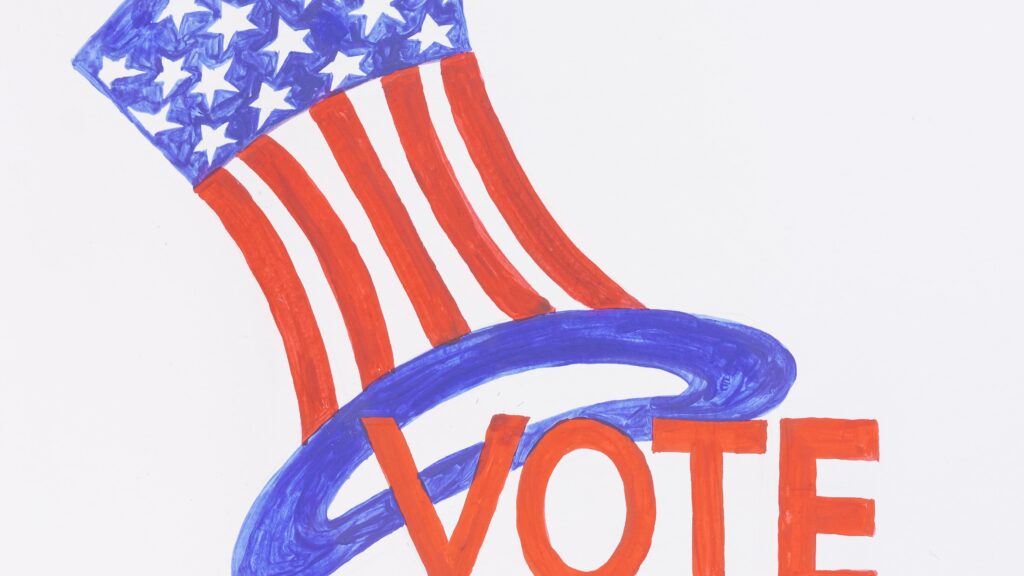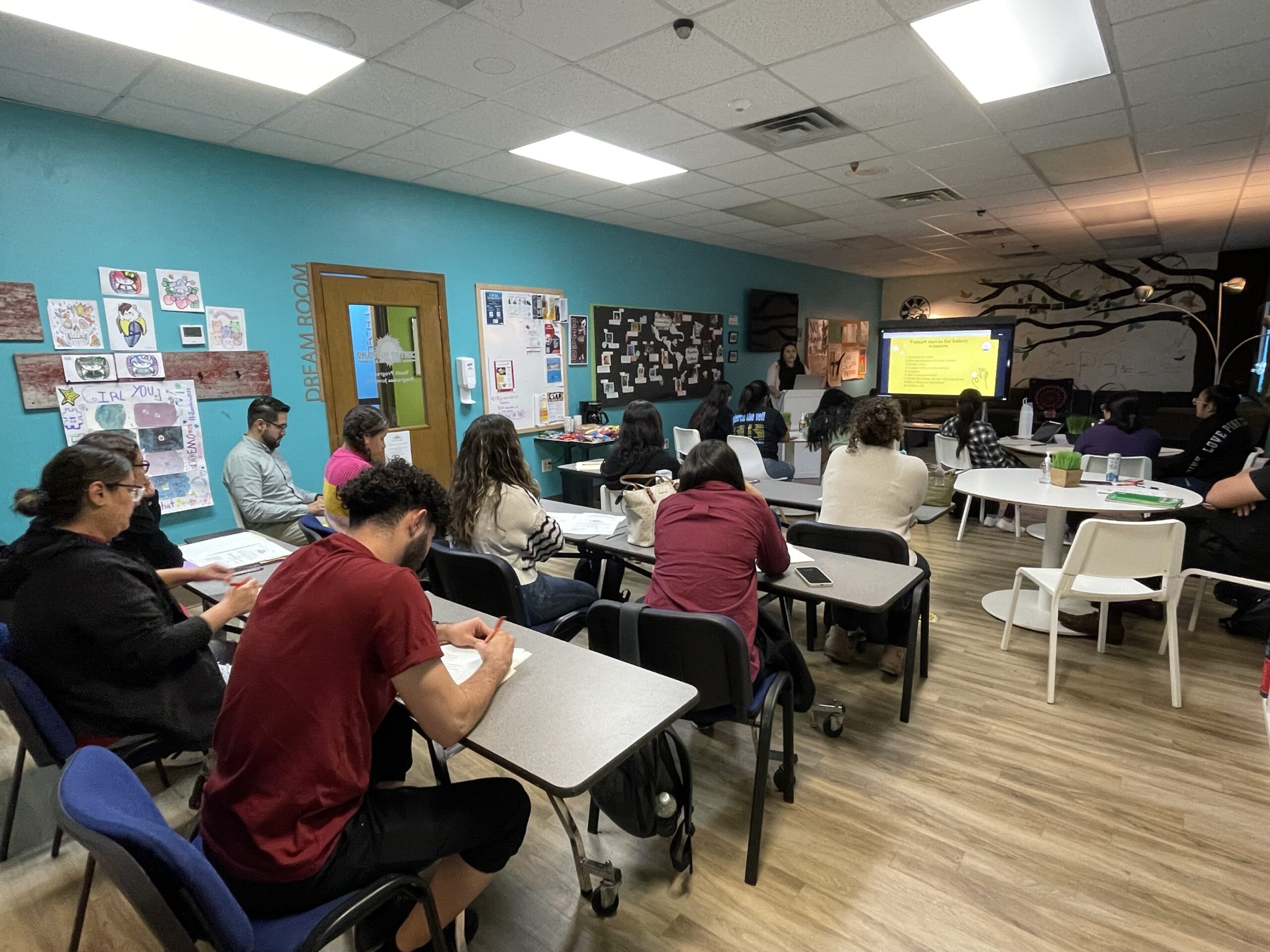“We defeated Trump and all Trump-like candidates — we defeated you in 2020, and we will defeat you in 2024,” said Christine Neumann-Ortiz, executive director of Voces de la Frontera Action. The immigrant rights activist led a protest on August 23, the day of the first Republican presidential debate. Neumann-Ortiz told the Wisconsin Examiner that the demonstration was meant to send a clear message to Republican leadership that “you are not welcome here.”
Inside the Fiserv Forum, Florida Gov. Ron DeSantis, the front-runner of the eight on the GOP debate stage, said, “I’m not going to send troops to Ukraine, but I am going to send them to our southern border.” DeSantis told people in attendance and 11 million viewers watching on Fox News (according to ratings data from Nielsen) that the Mexican drug cartels are killing tens of thousands of our fellow citizens. “We have to re-establish the rule of law, and we have to defend our people… We’re going to use force, and we’re going to leave them stone-cold dead.”
Despite the cold reception by some Latino-led organizations that night like “Voces,” Hilario DeLeon, chairman of the Milwaukee County Republican Party, feels good about his party’s chances of attracting Latino voters in next year’s presidential election.
“You know, we’re not going to win Milwaukee outright. It’s impossible. It’s just a Democrat city. But we can increase that voter percentage to, you know, help the rest of the state, give them breathing room,” said DeLeon. He told PBS Wisconsin that conservatives have more to offer on issues like jobs and high food prices, which are essential to the community.
Neumann-Ortiz said that unless the GOP changes its political stance on immigration and workers’ rights, the party will not make inroads with Latinos in the state.
The Hispanic Latino population is Wisconsin’s largest minority group, according to the 2020 Census report. The group’s numbers rose 7.6 percent in the last ten years, making up more than 447,000 Wisconsinites. The nonprofit Migration Policy Institute reports that many of them make up approximately 70,000 undocumented immigrants.
One hot-button issue affecting undocumented immigrants is Wisconsin Act 126, which prohibits undocumented immigrants from obtaining driver’s licenses. In Clark County, home to more dairy farms than any other county in the state, the number of undocumented Hispanic workers on medium-to-large farms is roughly 6,200, according to a University of Wisconsin at Madison study.
A recent ProPublica report finds that law enforcement officials say the roads are less safe because undocumented immigrants aren’t trained and tested on basic driving rules. Still, they drive anyway — and often without insurance. Court officials say tickets for driving without a license overwhelm their dockets and drain their limited resources.
Democratic Governor Tony Evers included a provision in his biennial budget proposal that would have allowed undocumented immigrants to receive a driver’s license, but Republican legislators stripped it out.
“When people talk about immigrant families, they talk about them being an economic engine for the United States,” Milwaukee County supervisor Juan Miguel Martinez told Urban Milwaukee. “Yes, they are, but we need to realize that they are not just that. Humans are more than the labor they provide to uphold capitalist systems that wish to destroy them when they cannot work. Driver’s licenses are a way for them to live a dignified life, where they will be able to drive, get car insurance, and have a shot at a normal life in society.”
Democrats traditionally have relied on their positions on immigration to attract Latino voters. Still, despite those efforts, former President Donald Trump improved with the electorate in his unsuccessful 2020 re-election bid. Exit polls reported that Trump won 37 percent of the Latino vote in 2020 (vs. 34 percent in 2016). The Atlantic reported that an election-eve poll from the Latino-run firm Latino Decisions showed a shift in Wisconsin, from 10 percent Latino support for Trump in 2016 to 22 percent in 2020.
In 2016, Trump won 16.2 percent of the vote in Milwaukee’s majority Latino wards, and Hillary Clinton won 79.5 percent. In 2020, Trump won 21.8 percent of those wards’ votes, and Joe Biden won 76.6 percent. (Biden won Wisconsin overall by about 20,000 votes.)
In 2020, 18,000 Latinos in Wisconsin turned 18 and are U.S. citizens. That’s enough to make a difference in an election in a swing state like Wisconsin.




